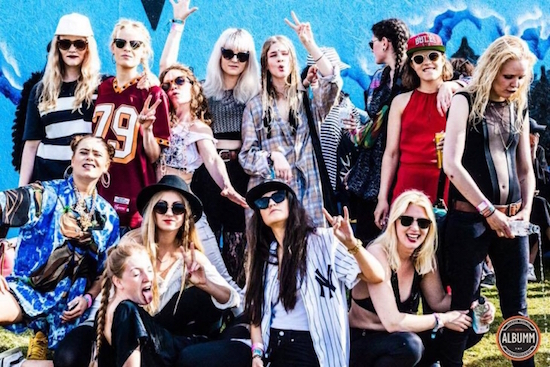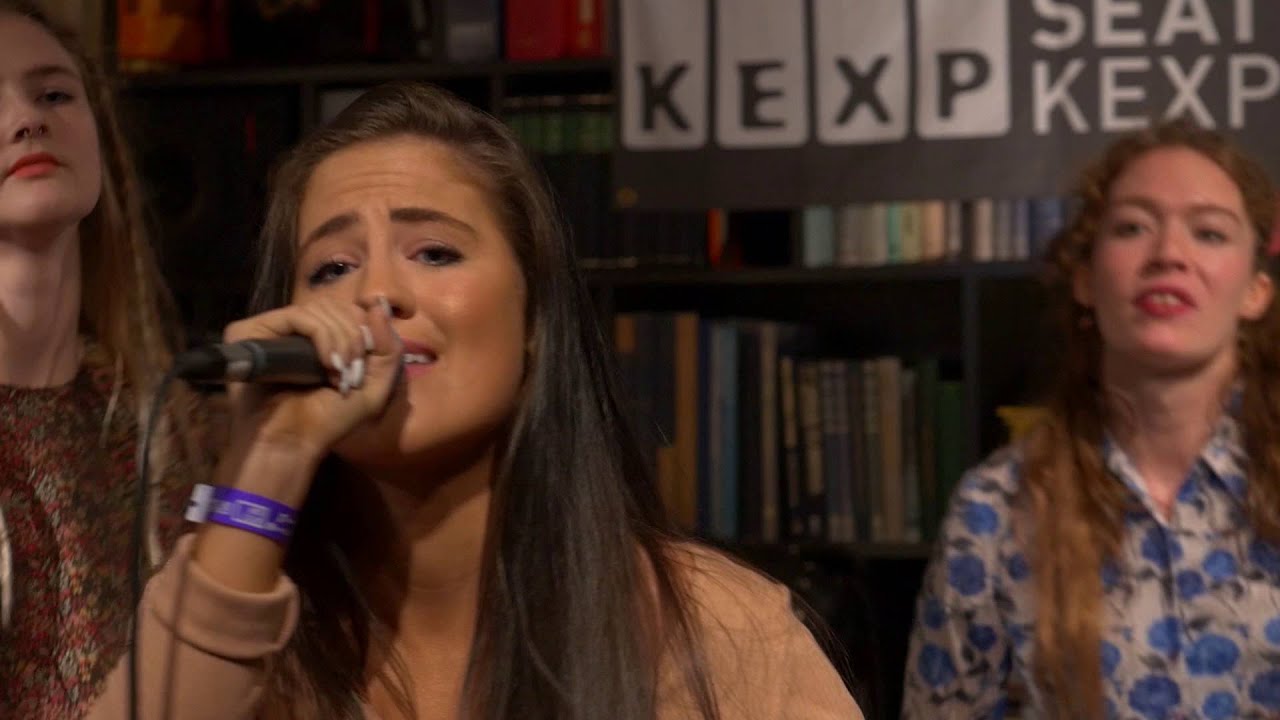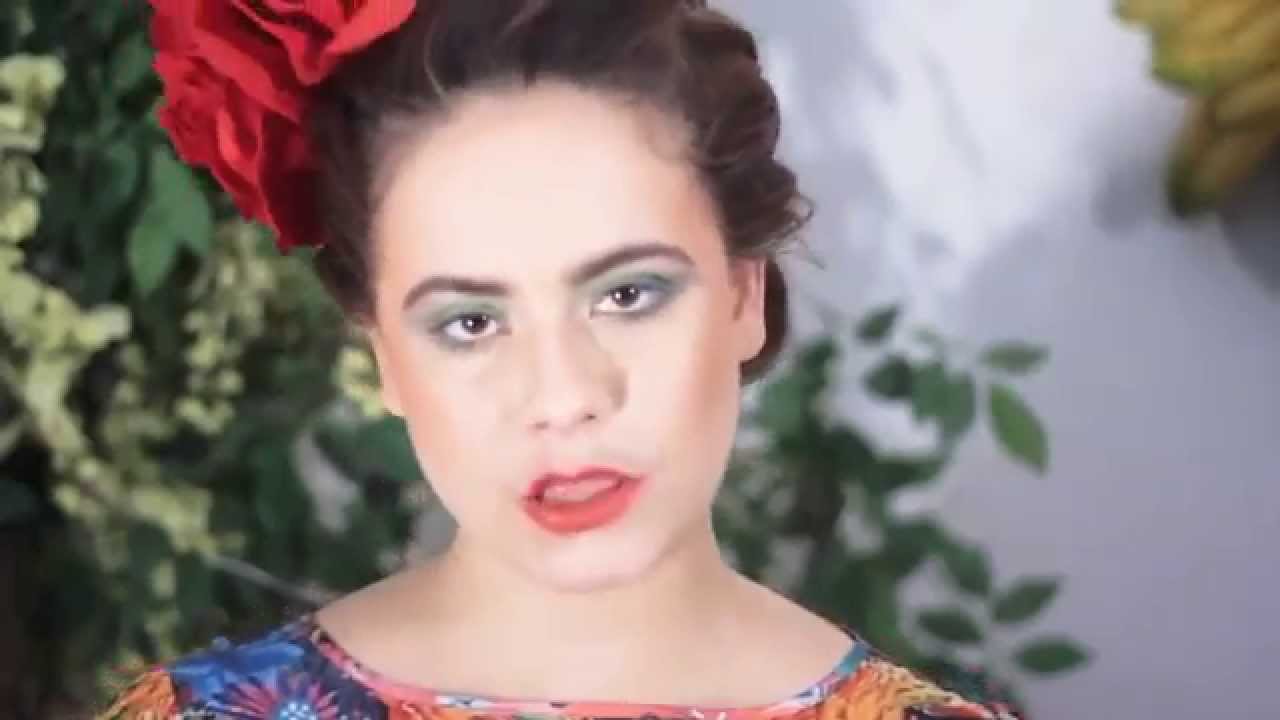Reykjavíkurætur – that’s the Daughters of Reykjavík to Anglophone readers – have been going for just over two years when I meet with them in the cavernous spaces of the city’s Modern Art Museum at 2015’s Iceland Airwaves festival. A 15-strong rap collective with a policy of welcoming new members to the fold – of showcasing talented young women who want to express themselves through the medium and expound a philosophy of empowerment – the band are a dynamic, raw and sometimes scattered presence on stage, but utterly focused in their mission as a social force.
Not only do they pre-date #FingersInTheBootyAssBitch by a measurable stretch of time, but as a group they had already refined that message to the place it should be now in 2016 – highlighting the notion that counteracting slut shaming by heaping embarrassment on "deviant"/non-macho sexual preferences in men is damaging rather than justice.
From disparate performances at open mic nights at a small bar in downtown Reykjavík to genuine players in facilitating change – challenging and changing attitudes about what it’s acceptable for women to say and do in the public domain – and a genuine musical presence in and beyond Iceland.
Of course, 14-year-old boys still pelt them with vegetables so there’s a long way to go.
At this point in time there are already loads of you guys. How important is it that there’s still an open door policy for people to join?
Reykjavíkurdætur: I think it’s very important just that we don’t get too full of ourselves; that our ego is never too blown up, you know. We’re trying to make space for the movement to flow without us pushing it in any way, so we’re kind of more floating with it than pushing it. It’s a lot less about the person and more about the whole, I guess, and just giving people the opportunity to try out.
Do people come and try out or do they worry that you’re a fixed entity now?
RVKD: They used to do it more in the beginning. It hasn’t been much lately, but we still have these open mic nights – female rap nights – and there are lots of new girls who come and perform for the first time, and they feel comfortable with that.
A lot of people think of Iceland as being a utopia for women, and – of course – they’re wrong, there isn’t anywhere that’s a utopia for women.
RVKD: Yeah, exactly. That’s the thing.
But how is it for you guys trying to push that message to people who have this ready-formed idea?
RVKD: We have so many things to say still and there’s so many more battles to win. And, of course, it’s different everywhere: travelling in Asia, in India talking to the women there and it felt like we’ve already done our thing in a way, compared to them. But when we just look at ourselves in our own society there are so many things more that we have to fight. There’s so many things left that we have to do.
It’s just a very sad fact that we are actually further along in terms of gender equality, because we’ve come such a long way, but there’s still so much left to do. But, at the same time, I fee like foreign people – people who are visiting Airwaves from different countries, for example – are really open to our band. Much more than Iceland. We don’t get airplay in Iceland; we’re not played on the radio.
Really?
RVKD: Yeah! We’re not invited to play the hip-hop nights, even though we’re really like a big name.
Is that because people don’t like the idea that you’re upsetting the myth of Iceland?
RVKD: I think it’s a threat in a way, really, because we’re so powerful and many and we have so many things to say and we give ourselves the space to actually express ourselves. And it’s a new thing in Iceland, we just started two years ago – really new – so the movement has come a long way in a short time, and I think people are uncomfortable still. Maybe it just takes time.
But, at the same time, we also get a lot of support. The audience who come to our concerts give us so much energy. So, yes, we get a lot of support – but still, you know, there’s a long way to go.
But it’s good to make people uncomfortable though, right? It means you’re actually doing something right.
RVKD: It means we’re pushing, I guess. Opening up some topics.
If no one’s uncomfortable then you’re not really doing your job right, right?
RVKD: We’re taking people out of their comfort zone! [laughs] We’re like, "Come over here and explore yourself!"
It’s always a really mixed audience at your shows: it always seems like there’s a lot of men in there.
RVKD: There’s more at Airwaves, definitely. When we play on a normal night in Iceland it’s kind of sad how few guys come. I think it’s like 80 per cent girls.
When we’re playing at schools and stuff like that – school dances – there are always girls who stand in the front and it seems like they really love us, but they’re kind of afraid of what the boys think of them. They’re afraid to express how much they like us and to mouth along with our lyrics. We’ve actually been booed off stage. By guys who were like 14 years old and they were throwing stuff at us – cucumbers!
I’m so sorry. We’re such dickheads.
RVKD: Yes you are. Shame on you. [laughs]
You were saying about not getting too full of yourselves, but obviously on-stage you have a very powerful presence that kind of works on confidence?
RVKD: We are full of ourselves on stage. We let ourselves be full of ourselves, be confident, take our space, say what we want to say and not apologise for it. To stand on both feet: it’s important. It’s important for young girls to come and to see that and to think, "Oh my god, this is allowed. This is not illegal."
Women have been apologising for a long enough time already and in music it seems like mostly they’ve been like those kind of cutesy bands, you know? That sort of thing has been growing and growing. And then all of a sudden 15 or 20 girls come on stage and do what we do.
And I guess rap is particularly good for that sort of thing?
RVKD: Yes because if you have a message then you have so much space. If you have a song then the lyrics have to be so much shorter, but in rap because you’re saying it all so fast you can have so much to say. [laughs]
In terms of having things to say, how does it work for you guys? With this many of you, who does the songwriting?
RVKD: We write our own verses. In the group songs that maybe all of us are in we just write our own stuff, just knowing that you have ten seconds or something. And then we group up – in two or three or four – and write songs in-between.
Do any of you perform as solo artists?
RVKD: Not under the name of Reykjavíkurdætur. Sometimes if we’re asked to do a gig and maybe just five of us can come, then we’ll do it still. And there are two duos in the group who perform separately. One of them actually pre-dates the group.
So the music is more than just a vehicle for the group; it came first, before you got together?
RVKD: It was kind of a coincidence, really. There were a lot of girls who were interested in rap but didn’t have the platform to perform it, but then they started these open mic nights and just invited girls who they knew were rapping – or even just writing poetry.
You’re allowed to make mistakes. We were amateurs when we started and even now we’re still learning a lot. We were pushed into the spotlight and since then we’ve just been learning.
It’s strange to hear you talk about that spotlight, knowing that – even though the international press coverage has been really positive – Reykjavíkurdætur isn’t as big of a thing here in your home country.
RVKD: In a way it is – when we’re playing live. But on the radio there’s not space for it yet. We get a lot of requests and stuff, but it’s still kind of underground in a way: but, then, we were on one of the biggest television shows and stuff. So we’re kind of big in some ways but it’s still a battle for us at the same time.
It has to be a battle, really, doesn’t it for it to work?
RVKD: Exactly, yeah. [The sound system in the hall of the Modern Art Musuem nudges itself awake and one of the group’s recognisable beats echoes around the empty chamber. Glances are exchanged, some words in Icelandic: Reykjavíkurdætur are due to play here in around 20 minutes and it’s probably time they went and prepped for that but it turns out there’s scope for a couple more questions.]
When you’re writing, do you think more about the quality of the music – of the songs themselves – or about what it is you’re trying to put across?
RVKD: We write the lyrics but usually get someone else to make the beats. So, for us, the focus is definitely on the lyrics but we try to choose the best instrumental beats to back that up – it just makes the song so much stronger. The main focus for us is on the content: on the lyrics and on the performance. On the energy.
It’s funny: the two separate times I’ve seen you perform so far at the festival, the content of the performance has been so different but you still had – or seemed like you were trying to keep – that same energy even though the actual make-up of the sound was different.
RVKD: Do you think so?
The men still felt bad, the women in the audience still seemed to know what you were trying to accomplish.
RVKD: We don’t want to make men feel bad: it’s not about man vs. woman. It’s more that so many women are blind to the structures that society has. It’s not that men are more ignorant than women or anything like that, but we just want to point out that there is inequality and that we want to change. And not just that, but also that we can change it and that things are changing a lot.
Have you actually seen things improve?
RVKD: Yeah! In the high schools there are feminist committees now. It seems like just a few years ago no one was a feminist, you know? And now everywhere there’s committees and movements like Free The Nipple. The impact that we can see that we’re having, that since we formed Reykjavíkurdætur there’s at least two or three younger rap groups and more and more girls are starting to rap. That’s great. Just to hear stories of young girls that are writing their own raps because they feel they can.
Things are definitely changing. Both girls and boys are more aware of things now than they were just a few years ago.
The one song you perform in English – ostensibly about woman-on-man anal sex – is kind of indicative of what you do as a whole: it isn’t just written to let women know that it’s okay to be sexually powerful, but also to let men know that it’s just as okay to not live up to macho stereotypes and embrace the broad scope of their sexuality.
RVKD: Yeah! That’s great. That’s definitely what we’re trying to say with that song. We put a lot of thought into it, because it’s also about how women tend to be ashamed of that kind of sexual behavior as much as men. There’s just a lot of shame. Shame isn’t good for anyone and we have a lot of songs about that, a song about slut shaming. And some that are just about nothing.
Reykjavíkurdætur play Sonar Rekyjavík on Thursday – for full details and tickets, head here – and Birthdays in London on March 11




